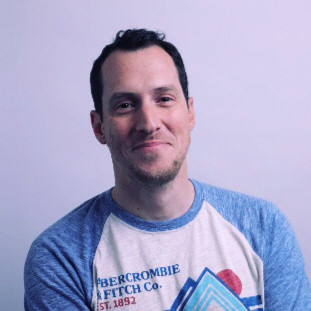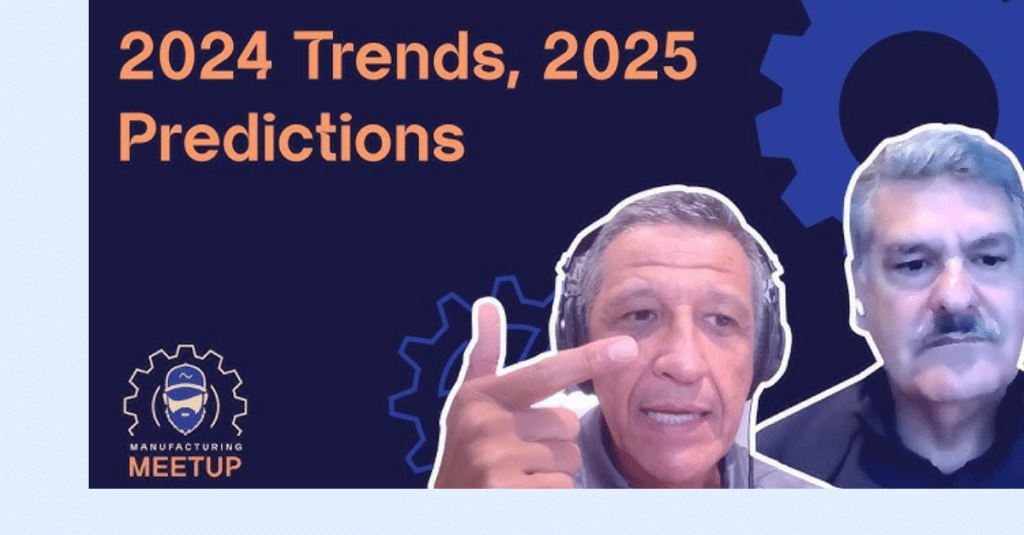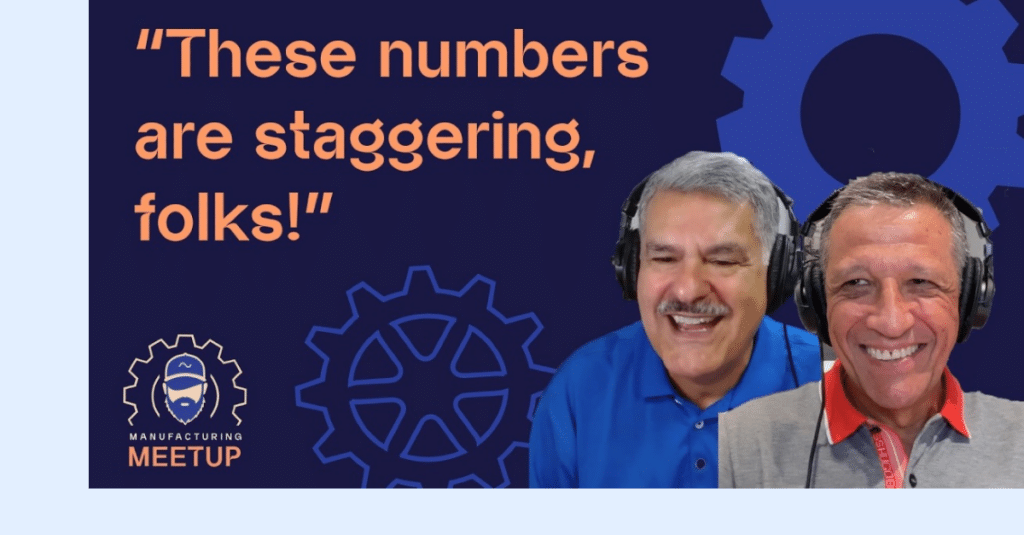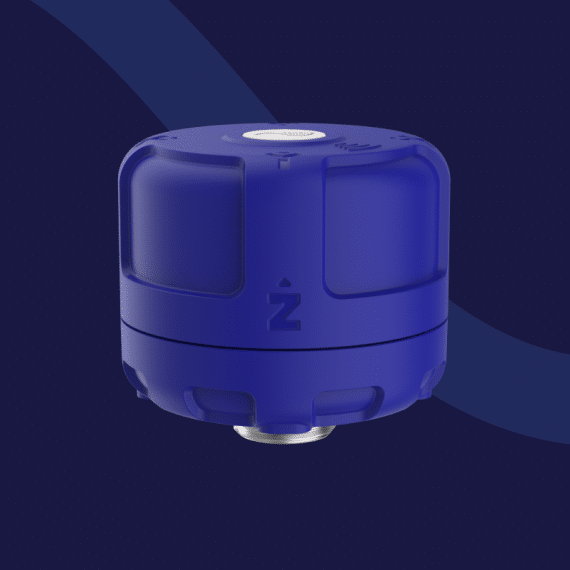
Tal Gurevich has enjoyed a varied career – one that includes crashing more startups than you can count on one hand. Those experiences have equipped him for the role of Augury’s Director of Product, AI. “Yes, I learned a lot about how not to do things. It also taught me that applying AI to a product is its own unique beast.”

“I have a mixed background from politics to banking,” says Tal Gurevich, Augury’s Director of Product, Artificial Intelligence. “In tech, I’ve spent the better part of my career as an entrepreneur. But I’ve also had positions in sales, account management and product. I’m always out to learn new skills.”
“And I certainly learned a lot while crashing six startups before starting at Augury – I actually think it’s why they hired me,” chuckles Tal. “I now know how not to approach customers. I know that when building products, it might be handy to apply some of the stuff they teach at business school. And I know that you need to tackle the actual problem before trying to build a solution. But I’ve also worked for bigger companies that weren’t mine that also screwed up in very big ways.”
“At the end of the day, I am proud of what these experiences taught me. The knowledge is now worth its weight in gold – especially in terms of product work and taking an AI-driven product to market. It’s really a whole other ballgame. With AI you are constantly in research mode trying to find an answer. It’s not simply about building code and shipping features. You need a certain tenacity to produce a tangible, useful, market-fitting product,” says Tal.
“Fundamentally, you have to find a shared vocabulary for both inside and outside the company – while speaking in terms of value and not algorithms.”
“At the end of the day, I am proud of what these experiences taught me. The knowledge is now worth its weight in gold – especially in terms of product work and taking an AI-driven product to market.”
1) It’s Serious Business, So Find The Real User Problem
“After crashing six startups and burning through millions and millions of dollars, you only get more aware of the gravity of the situation. People’s livelihoods are at stake. So, it’s up to you to really try your best to get things right.”
“At the same time, most of the positive and impactful results I’ve achieved have not been through throwing money at problems – so you can move fast, buy ad space and hire for hypergrowth. Rather it’s been about diving deep into customer experiences and business problems.”
“You need to focus on a specific problem and come to understand it so you can treat it like a process. You need to really feel the problem: the guts of it. Only then will you know that you hit a real customer need.”
“The idea behind this obsessive ‘immersion in problems’ – nicely described in books like Continuous Discovery Habits – is that the process is a fallback to instincts. Sometimes muscle memory and repetitive habits can help you break through that elusive market fit.”
“Most of the positive and impactful results I’ve achieved have not been through throwing money at problems – so you can move fast, buy ad space and hire for hypergrowth. Rather it’s been about diving deep into customer experiences and business problems.”
2) Make Sure The Solution Is Sticky
“Products are crap if they don’t create traction or stickiness inside of an existing process in a company. It’s like applying Slack to a company and just using the messaging service. You need to fully integrate it with how the company works so meetings and emails are eliminated, and you are engaged in continuous conversations – then you’ve really done something. So, you need to understand the transformative nature of the product in your customer’s experience. Again, this is something you really need to feel – and this only happens if you’ve seen solutions not work.”
3) Always Walk In Fields of Truth
“You must constantly challenge yourself. You must walk in fields of truth and not venture up fantasy mountains. All scenarios need to be looked at. You need to do the product discovery, challenge your assumptions and then validate your assumptions. Assume nobody knows anything.”
“This is very much part of Augury’s overall mindset for developing products. Everything is up for debate and discussion. And the flipside of this is: everything has to be transparent and be discussed with a shared vocabulary that needs to involve as many people as possible. Only then can you generate the types of discussions you need to take a product forward and develop it as best as possible.”
“Of course, ‘truth’ is always important. But it’s particularly important for AI because we are still in the early days. We’re only beginning to understand what AI is good for – and what it’s not good for – in terms of benefiting a company’s business. Only very few people really understand it – and how to use it, sell it and market it. At the same time, there’s also a meta understanding that we’re defining the future of work and the future of product development as we go. It’s about creating a whole new world.”
4) Always Building A Shareable Vocabulary
“A shareable vocabulary is not only essential for colleagues but also for customers. No one trusts something that comes out of a machine – at first anyway. Our ‘black box’ is a very conceptual mathematical and statistical model. So what are the actual nuts and bolts we can talk about? How can we explain our black box in terms of value?”
“For instance, our Machine Health AI is anomaly AI: it’s an algorithm that finds anomalies in patterns to provide what we called “the best defence against downtime”. And based on this idea – that we alert our customers if something is wrong – we were able to build our first iteration. Of course, our solution is now far more advanced. Further and very different algorithms can now find particular faults and prescribe actual actions based on these insights. But the core of it remains the same – and continues to drive conversations with our customers.”
“A shareable vocabulary is not only essential for colleagues but also for customers. No one trusts something that comes out of a machine – at first anyway.”
5) Research, Research, Research
“Solving something with AI is very different from solving something with code. It’s no longer about building with code to get the output you want. The AI solution is about playing with the data. And this involves a completely different skill set and a completely different set of people. Data scientists are in a way very much closer to the problem than a coder. Their work is very, very deep and very, very contextualized. To properly use data and apply a model to it, the act of collecting, labelling, filtering and cleaning the data becomes extremely important. As they say: “Garbage in, garbage out’. A researcher has to apply a lot of product scenario and thought into this part of the process.”
“So, AI is a long and hard research-oriented process with a lot of trial and error until you find the right method that hits the right metrics. And that takes a very long time and doesn’t always have the outcome you want. But if you don’t sharpen the knife properly, you’re going to veer way off. You really have to hone for the outcomes. That’s why with Augury, we focused on initially tailoring our AI very specifically to our defence strategy – so we would never miss an anomaly and thereby gain the trust of our customers.”
“You have to speak in terms of value, not algorithms.”
6) Playing The Long Game
“Machine Health is a classic case of hybrid AI. We loop in human expertise in the form of, for example, our vibration analysts. They not only provide a human face to help our customers in interpreting what’s coming out of our ‘box’. But their perspectives also help us to develop and enhance our algorithms. So it’s not only about providing great service. At one point the algorithms will be so advanced, these services can be increasingly more automated. That’s the long-game we’re playing.”
“But actually, playing a long-game is part of research methodology – creating discussions, taking on new viewpoints, etcetera. It’s automatically a long game when you’re constantly battling for the right outcome…”
Read more about Augury’s AI:
‘10 Reasons Why Augury’s AI Is Exciting More People Than Just Manufacturers’
‘Why AI? Because It Works Better Than Previous Technologies’






